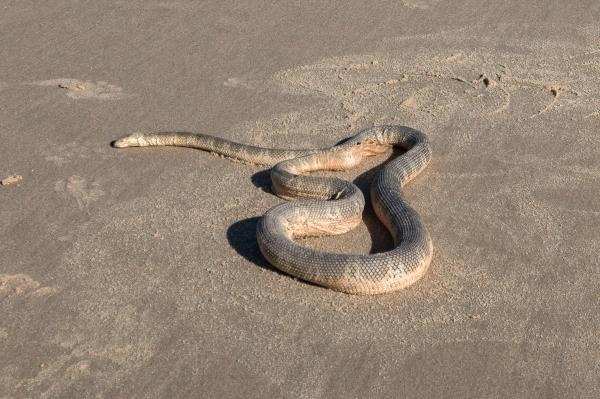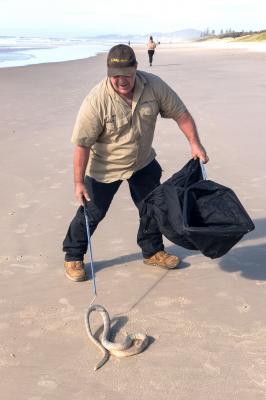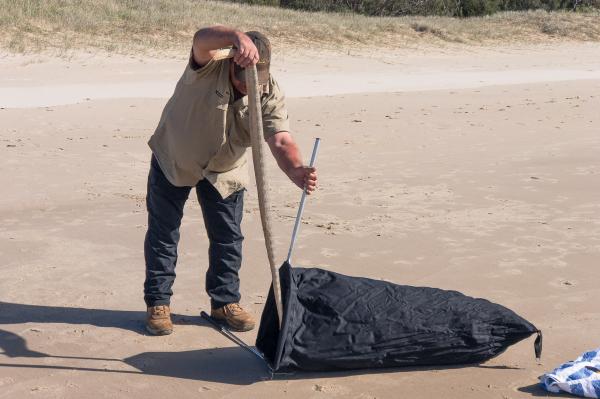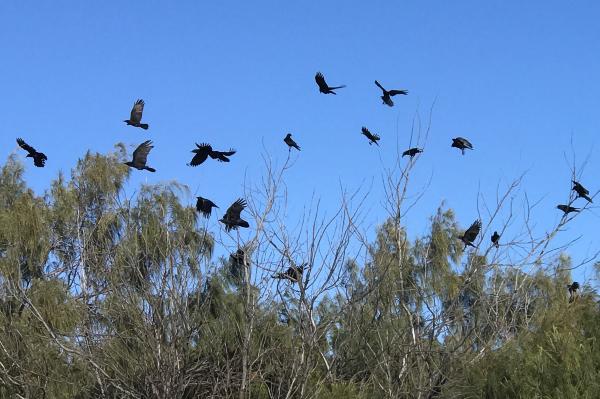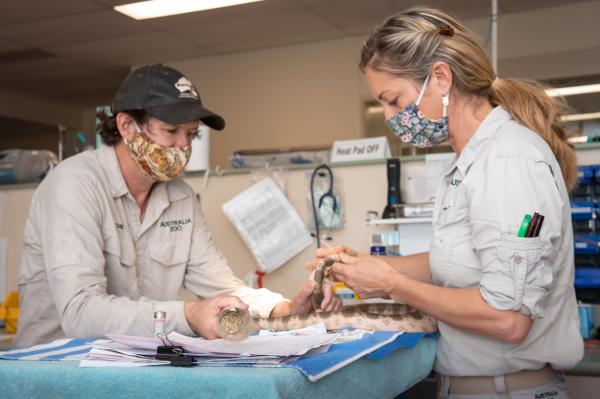Noosa Wildlife’s Will Watson raced to Peregian Beach recently when called to assist a sea snake washed up on the beach.
Locals said the snake had attempted to return to the sea but was unable to make it past the waves and washed back up on the beach.
With crows circling the sea creature, Will came to its rescue, quickly securing it in a bag accompanied by a wet towel to keep it moist, and raced it to Australia Zoo for care.
Will said it was the second sea snake he had rescued from Peregian Beach in as many weeks.
An Australian Zoo spokesman said a staggering number of sea snakes had recently been admitted to the Australia Zoo Wildlife Hospital after being found stranded and washed up on local beaches.
The Australia Zoo Wildlife Hospital’s state-of-the-art wildlife rehabilitation facility has received and treated more than 15 sea snakes in the past few weeks and is continuing to see more being rescued and brought in, he said.
“Australian sea snake species live their entire life in the ocean and are not supposed to come to land at any stage during their life-cycle,” said Dr Amber Gillett, wildlife veterinarian and coordinator of research at Australia Zoo Wildlife Hospital.
“The sea snakes that were brought to the Australia Zoo Wildlife Hospital were found stranded on the beach, which is very abnormal for these animals, and were most likely sick or injured,” Dr. Gillett said.
“When sea snakes wash ashore, they can pose a risk to human health and safety because they are highly venomous. If people find sea snakes on the beach, they should not touch them under any circumstances, and instead call the Australia Zoo Rescue Unit or a local wildlife rescue group who will transport the animal to the nearest wildlife hospital,” she said.
The sea snakes admitted to the Wildlife Hospital presented with varied injuries from trauma leading to a fractured jaw, to cancer in their liver and spleen, and from being overburdened with parasites and chronic illnesses, all of which led to them being found outside the water.
Sadly, some of these gorgeous reptiles were humanely euthanised as their injuries were too severe. The rest of these animals will remain in the specialised care of Dr Gillett and experienced team at the wildlife hospital until they recover, and are suitable to be released back into their natural habitat.
“Australia has the most species of sea snakes than anywhere in the world. They are fascinating, beautiful and graceful creatures with many amazingly unique and highly specialised adaptations that allow them to live in saltwater,” Dr Gillett said.
Sea snakes in the wild become victims of trawling, boat strikes, diseases and suspected environmental or habitat change. There are a number of sea snake species in Australia that are critically endangered, making it essential to learn more about these animals so that we can continue to protect them, and preserve their population for generations to come.
For more information, visit wildlifewarriors.org.

